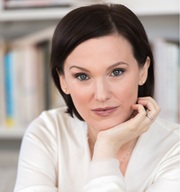Your perimenopause mind: managing mood, memory and sleep

Kellie Gillespie-Wright discovers how hormonal changes impact memory, mood, sleep, and energy, why misdiagnosis is common, and how lifestyle, medical care, and emotional support can help women adapt, reframe, and thrive through perimenopause.
Words: Kellie Gillespie-Wright. Images: Shutterstock, Pexels
Panic attacks. Social withdrawal. Brain fog. A collapsing tolerance for other people’s nonsense. For many women in their late thirties and forties, these are not signs of burnout or mental illness. They are the often-unspoken symptoms of perimenopause, a shift that can last for many years, yet is still treated as a minor inconvenience, if it is indeed acknowledged at all.
Despite affecting half the population, this major life transition remains widely misunderstood, frequently misdiagnosed, and often misnamed. It can last for as long as 12 years, yet is often dismissed as a fleeting prelude to menopause.
Instead of real answers, many of us are brushed off with unnecessary antidepressants or labelled with anxiety, ADHD, even bipolar disorder, and still left wondering why we don’t feel quite like ourselves.
Even now, in 2025, medical training often overlooks how hormonal changes like perimenopause affect the brain. Instead of investigating, many doctors still reach for the antidepressant pad. Not because they’re uncaring, but because the system didn’t teach them better. And women are paying the price.
To understand why this matters, we need to get clear on what perimenopause actually is, and why it’s so often missed. Perimenopause is the transition leading up to menopause, a phase marked by shifting and declining oestrogen levels that affect everything from the menstrual cycle to how the brain functions.
It often begins in the late thirties or early forties, though many don’t realise what’s happening until symptoms become impossible to ignore. Periods may change, becoming irregular, heavier or lighter, but it’s often the mental and emotional shifts that take us by surprise. Mood swings, anxiety, insomnia and memory lapses can appear out of nowhere.
These changes aren’t just happening in the body; they’re happening in the brain. And that’s the part no one prepared us for.
‘A recalibration process’
‘Perimenopause is a time of profound neurological change, akin to a renovation project on the brain,’ says Dr Lisa Mosconi, director of the Women’s Brain Initiative at Weill Cornell Medical College and author of The Menopause Brain (Allen&Unwin).
‘So-called “sex hormones” like oestrogen and progesterone, while often thought of as reproductive hormones, are brain hormones too,’ says Dr Mosconi.
‘Oestrogen in particular supports memory, mood, emotional regulation, and energy metabolism in the brain. As oestrogen levels fluctuate and then decline during the transition to menopause, the brain goes through a recalibration process, adjusting to this new hormonal environment. This can disrupt neurotransmitters like serotonin and dopamine, affect mood and stress responses, and slow the brain’s energy production.

‘It’s not a character flaw!’
‘While more research is needed, these changes have been associated with symptoms like brain fog, anxiety, and emotional overwhelm,’ says Dr Mosconi.
‘It’s not a character flaw. It’s a legitimate neurological transition.’ She adds: ‘In the field of neuroscience, oestrogen is referred to as the “master regulator” of women’s brain health.
That’s because it plays many roles in the brain. It promotes plasticity, helping brain cells grow, adapt, and form new connections. It also regulates neurotransmitters like serotonin, dopamine, and acetylcholine, which influence mood, memory, and emotions.
‘Oestrogen even helps the brain use glucose for energy,’ says Dr Mosconi. ‘When oestrogen levels decline, all of these processes can be affected, leaving some women more vulnerable to cognitive changes, mood and sleep disturbances. However, with the right support, many women adapt beautifully over time.’
Of course, this kind of rewiring doesn’t wait for the right moment (whenever that might be!). It happens instead while you’re in the thick of life, juggling multiple responsibilities, raising children, caring for ageing parents, carrying heavy emotional loads. And just as the pressures pile up, the chemical scaffolding that helped you stay steady and strong starts to fall away. (Find out what the best supplements for perimenopause are here!)
And without understanding the hormonal shifts going on within us, many of us are left thinking that we’re falling apart. But what gets brushed off from the outside as moodiness or instability is often a sign of something deeper at work.
Because this is the part that no one tells you: beneath the chaos, something new is taking shape. What feels like a breakdown might be the first signs of a breakthrough. What looks like mood swings could be new boundaries forming. What seems like social withdrawal might be the brain pulling back to preserve energy for what matters most.
In fact, what may feel like decline is often the brain recalibrating. Some old connections fall away, new ones take root, and while the process can feel like everything is collapsing, it’s often just the brain finding a new way to function. It is not less capable, it’s just differently wired.
‘Just as puberty reshapes the brain for reproductive life, perimenopause reshapes it for post-reproductive life,’ says Dr Mosconi. ‘While there can be some glitches, like hot flashes, brain fog or low mood, this process also opens space for emotional growth and clarity. From a neurological perspective, this makes sense,’ she says. ‘The brain shifts away from reproduction-related functions and can focus on other forms of fulfilment.’

‘We need to reframe it’
But to benefit from these changes, we need to understand what is happening. And we need support from the start. ‘I love this notion and strongly support it,’ says Dr Mosconi.
‘We need to reframe perimenopause as a whole-person transition: biological, cognitive, emotional, and social. Education should start early, well before symptoms begin, so women know what to expect and don’t feel blind-sided.
‘Support should focus not just on symptom relief, but on tools for emotional resilience, stress management, and lifelong brain health, like mindfulness, exercise, and nutrition,’ says Dr Mosconi. ‘It’s also crucial to train healthcare providers to recognise and validate these experiences, rather than dismissing them as “just hormones” or worse, a pathological state. The goal is to empower women with information about all their options,’ says Dr Mosconi.
‘Both lifestyle, behavioural and medical, so they can make informed, personalised decisions. ‘Early intervention can make a meaningful difference,’ she continues. ‘Lifestyle factors like regular exercise, sleep, stress reduction, and a Mediterranean-style diet have been shown to protect brain health and ease the menopause transition.
‘Hormone therapy, when started around the onset of perimenopause, may also help, particularly for women with severe symptoms or undergoing early menopause,’ says Dr Mosconi. ‘Cognitive Behavioural Therapy (CBT) and clinical hypnosis are also recommended by professional societies. The key is proactive, informed care. Supporting the brain and body before symptoms escalate, rather than waiting for a crisis.’

‘No two brains are alike’
‘That said, this is not true for all women,’ she adds. ‘There’s a wide range of responses to perimenopause, and every woman’s experience is different, shaped by her genetics, health and medical history, environment, and lifestyle.
‘This is why we need a precision medicine approach, one that recognises individual biology and offers tailored support. No two brains, or transitions, are alike.’ That’s why it helps to start paying attention to what’s happening in your own mind and body. You don’t have to wait until breaking point to get support.
Start by tracking your symptoms: mood, sleep, energy, memory. Use a journal or app to spot patterns. These records help when speaking to a GP or therapist. When you do decide to speak to a healthcare professional, go in with clear questions like, ‘Could this be perimenopause?’ or ‘Can we explore hormonal changes as well as mental health?’
Ask for a hormone check, which often looks at oestrogen, progesterone, and FSH (a hormone that helps regulate your cycle), as well as referrals for CBT or a menopause specialist. Beyond medical care, it’s also important to find supportive spaces where you can feel understood and connected.
Whether it’s a local menopause café or online communities, they offer not just information, but a sense of shared experience. The goal isn’t to fix yourself, but to better understand what your brain and body are going through and to seek care that addresses the full picture, not just isolated symptoms. But that kind of clarity doesn’t arrive by accident.
It starts with speaking up, asking questions, and refusing to be brushed aside. Most of all, it comes from advocating for yourself and learning to name what is really happening.
You are not imagining this. You are not overreacting. You are moving through a real, measurable biological shift that deserves serious attention and proper care, and when you can describe your symptoms with clarity and confidence, it becomes harder for anyone, including your doctor, to dismiss what you are going through.
Read: The Menopause Brain by Dr Lisa Mosconi (Allen&Unwin)
Listen: Perimenopause WTF?! Podcast
Watch: Davina McCall: Sex, Myths, and the Menopause on Channel 4

Dr Lisa Mosconi is a neuroscientist and director of the Women’s Brain Initiative and Alzheimer’s Prevention Program at Weill Cornell Medical College, where she also serves as Associate Professor. Her research explores how genetics, hormones, lifestyle, and environment shape the female brain across the lifespan. She is the bestselling author of The Menopause Brain, The XX Brain, and Brain Food. lisamosconi.com









